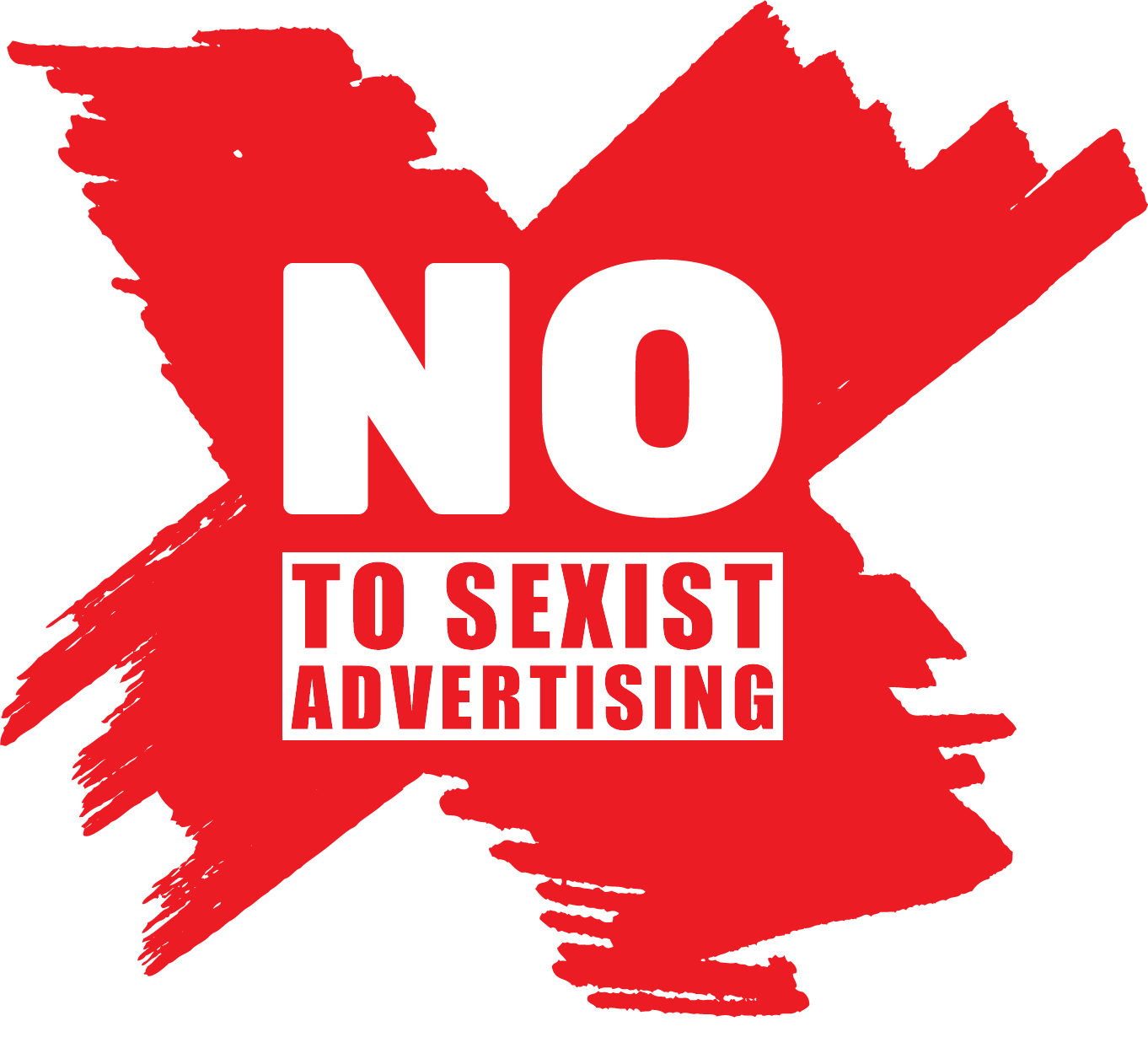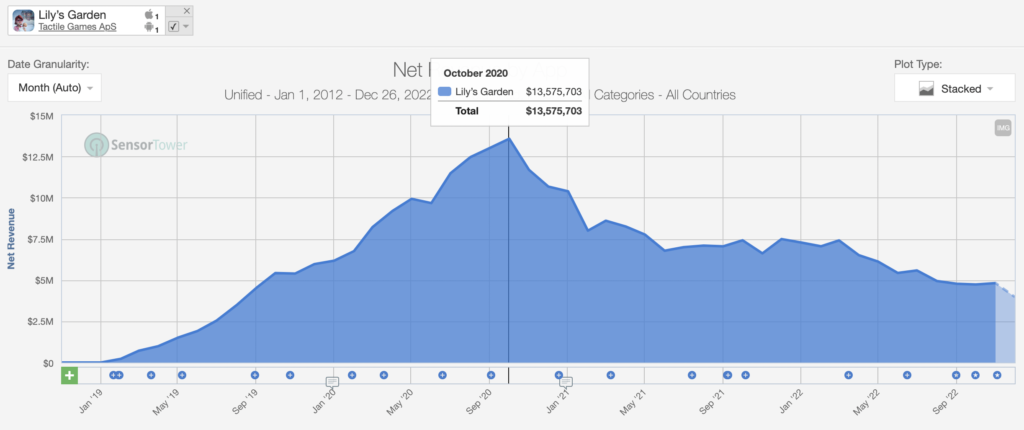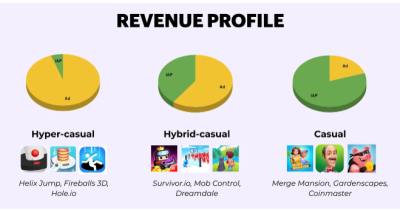
How to stop sexist creatives in User Acquisition
Facebook
Twitter
LinkedIn
Mobile games have become a popular form of entertainment for people of all ages. However, some mobile games contain creatives that are sexist and objectify women. This type of advertising is not only wrong, but it can also have a negative impact on players, the gaming industry, and society as a whole.
Reinforcing harmful gender stereotypes
These creatives often depict women as sexual objects or portray them in subservient roles. This perpetuates the idea that women are inferior to men and are only valuable for their appearance or sexual appeal. This can have a damaging effect on how both men and women view and treat each other, and can contribute to a culture of misogyny and gender inequality.
Harming your players & society
Another reason why sexist ads in mobile games are wrong is that they can be harmful to players. Seeing these creatives can lead to feelings of body shaming, self-esteem issues, and even depression. For younger players, these ads can have a particularly damaging effect on their self-image and self-worth.
In addition, sexist ads in mobile games contribute to a larger culture of objectification and sexualization of women. This can have serious consequences for women in society, as it can lead to an increased acceptance of sexual harassment and violence against women.
Where & when did it start? Lily’s garden
The unfortunate starter of the sexist ads category is Lily’s garden. Published by the Danish developer Tactile Games, Lily’s Garden is a match-3 blast game. The goal of the game is to help Lily renovate her great-aunt’s garden.
Along the way, Lily interacts with a cast of intriguing characters, which forms the game’s narrative meta layer. We all remember all those bizarre and shocking creatives about pregnancy, NSFW, cheating, etc.
The goal is to shock viewers, grab their attention with something unexpected, and make Lily’s universe much more exciting.
https://www.youtube.com/watch?v=Rk7bL4kMvIU
That’s not all. Some of the recent creatives IMHO crossed the line a bit.
https://www.youtube.com/watch?v=Oah7xa1lGi4https://www.youtube.com/watch?v=jLUh454OayA
The explosive growth of the game at the time

CPI’s are super high in the Match3 genre, you can’t really grow the LTV. The CPI vs LTV equation doesn’t work.
I talked about this in the Fake ads article. If you really think about it, it’s the same strategy all over again. When something is clearly working, others want to copy it. But in this case, instead of misleading creatives, you use narrative and story-driven creatives (isn’t it fake too?) to get the attention, create drama, plot twists, misogyny, and a bit of sexism here and there. Here are some examples:
Family town
Garden Affairs
Seriously, this is even worse.
Gardenscapes
So far, we could see examples from smaller games trying to get some growth. Big guys are also using the concepts picturing a homeless family “begging” for gold or family trying not to freeze. WTF, is wrong with you people?
Unfortunately, the Match3 genre is not the only one where we see this type of creatives.
Kiss of War
This is just the tip of the iceberg.
How to stop sexist ads?
Sexist ads are a pervasive problem that can be found in mobile games. It’s really hard to stop this behaviour, but there are steps we can take together!
Report sexist ads!
One way to stop sexist ads is by reporting them. If you come across a sexist ad in a mobile game or any other medium, report it to the game developer or advertiser. This helps to bring attention to the issue and can encourage them to take action. Many companies have processes in place for handling reports of inappropriate or offensive advertising, and reporting these ads can help to ensure that they are removed.
Support organizations that work to combat sexist ads
Another way to stop sexist ads is by supporting organizations that work to combat them. There are several organizations, such as the Advertising Standards Authority (ASA) in the UK and the Federal Trade Commission (FTC) in the US, that work to ensure that advertising is respectful and not harmful to society. Consider supporting these organizations through donations or by advocating for their work.
Support mobile games that do not use sexist ads
In addition, supporting mobile games that do not use sexist advertising can help to encourage game developers and advertisers to avoid using these types of ads. Look for games that have a positive and inclusive approach to advertising and consider supporting them through downloads or in-app purchases. By supporting these games, you can send a message to the industry that there is a demand for more respectful and empowering advertising.
Educate others & be proactive
Another way to stop sexist ads is by educating others about the impact of these ads. Share articles and resources about the negative impacts of sexist advertising with friends and family, and participate in campaigns to combat sexist advertising. By raising awareness about the issue, you can help to create a groundswell of support for more positive and inclusive advertising.
Finally, it is important for companies to be proactive in avoiding sexist ads. This means carefully considering the impact of their advertising and striving to create ads that are respectful and empowering to all genders. Companies can also consider implementing policies and procedures to ensure that their advertising meets these standards.
By taking these steps, individuals and organizations can work together to stop sexist ads in mobile games and create a more positive and inclusive environment for everyone. It is important to remember that change takes time and that it may take the efforts of many people to create lasting change. However, by taking action and working towards a more respectful and inclusive society, we can create a world where everyone is treated with dignity and respect.
Facebook
Twitter
LinkedIn
Subscribe now to podcast
Facebook guidelines
Advertisers are required to follow Advertising Standards, which are designed to help protect people from poor experiences and support meaningful connections between people and businesses across our technologies. For example, they don’t want ads that use profanity, show excessive nudity or include misinformation.
Policies apply to paid advertising through Facebook, Messenger, Instagram and the Meta Audience Network. For a full list of our advertising policies, you can visit our Advertising Standards.
In the Meta Business Help Center, they provide additional information on some of our advertising policies. See below for a list of articles:
- Personal attributes: Meta’s advertising policy prohibiting ads that contain personal attributes, including information on avoiding assumptions about someone’s personal attributes in your ads.
- Sensational content: our advertising policy prohibiting sensational content, including information on avoiding shocking, sensational, inflammatory or excessively violent content in your ads.
- COVID-19: our advertising policies related to COVID-19, including what types of products and content are temporarily restricted or prohibited.
- Cryptocurrency products and services: our advertising policy for cryptocurrency products and services, including information about eligibility to run ads about cryptocurrency.
- Dating: our advertising policy for ads about dating services.
- Drug and alcohol addiction treatment: our advertising policy for drug and alcohol addiction treatment, including information about how to apply to run these types of ads.
- Online gaming and gambling: our advertising policy for online gambling and gaming, including information about how to apply to run these types of ads..
- Personal health and appearance: our advertising policy prohibiting ads that generate a negative self perception or imply unrealistic or unexpected results.
- Alcohol: our advertising policy on the promotion of alcohol.
- Social issues, elections or politics: our advertising policy for ads about social issues, elections or politics.
Google Guidelines
Google is committed to delivering a safe and trustworthy ad experience for all users. That’s why they limit serving certain types of ad categories for users that aren’t signed in or users that our systems indicate are under 18.
Sexual content
Ads should respect user preferences and comply with legal regulations, so they don’t allow certain kinds of sexual content in ads and destinations. Some kinds of sexual content in ads and destinations are allowed only if they comply with the policies below and don’t target minors, but they will only show in limited scenarios based on user search queries, user age, and local laws where the ad is being served.
Examples of restricted sexual content: Visible genitalia and female breasts, hook-up dating, sex toys, strip clubs, sexually suggestive live chat, and models in sexualized poses.
No bullshit gaming podcast two & a half gamers break!
two & half gamers gaming podcast
3 Videos

session #44
0:16

session #43
0:16

session #42
TikTok guidelines
Ad creatives & landing page must not display or promote the use of prohibited adult products or services.
Ad creatives & landing page must not display sexual activities or behaviors that are overly suggestive or sexually provocative.
Ad creatives & landing page must not display nudity, make sexual references, or sexually portray a person.
Ad creatives & landing page must not display excessive visible skin.
Ad creatives & landing page must not focus on individual intimate body parts, such as a genitalia, buttocks, breasts.
Verdict
All the UA channels prohibit sexual content, nudity, and excessive visible skin. They don’t talk about sexist or harmful ads. There is nothing specific!
Create a more positive & inclusive environment
It is important for mobile game developers and advertisers to be aware of the impact of their advertising and to refrain from using sexist or objectifying ads. Instead, they should strive to produce creatives that are respectful and empowering to all genders. By doing so, they can help create a more positive and inclusive environment for players and society as a whole.
Talking about sexist ads in two & a half gamers
https://youtu.be/-qlfBKC9jBY
In conclusion, sexist ads in mobile games are wrong because they reinforce harmful gender stereotypes, can be harmful to players, and contribute to a larger culture of objectification and sexualization of women. It is important for mobile game developers and advertisers to be mindful of the impact of their advertising and to create ads that are respectful and empowering to all genders.
Stop sexist ads now!
Oh wow! You made it until here! You must be very engaged. I like that type of players.. Ehm, people!
Please share this article with your industry friends. It would mean a world to me.
Also, subscribe to my newsletter. It’s so honest it might actually annoy you. If you are easily annoyed, please don’t subscribe.
Facebook
Twitter
LinkedIn
Subscribe now to podcast
Subscribe to Brutally Honest Newsletter
UA Insights so honest it might actually annoy you.








